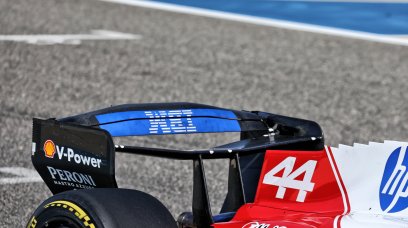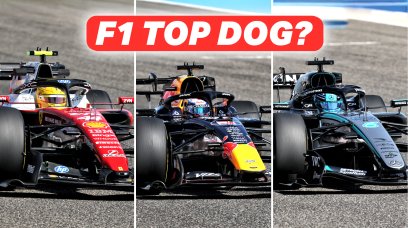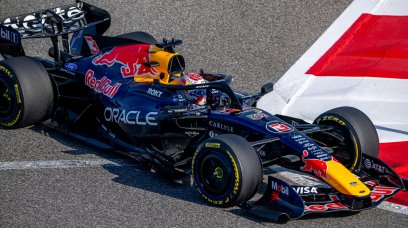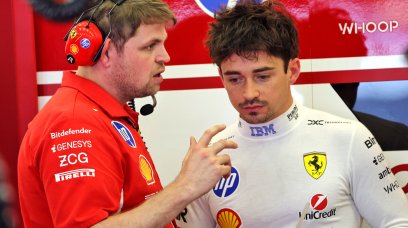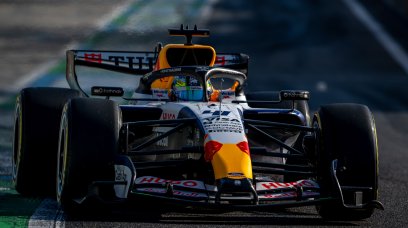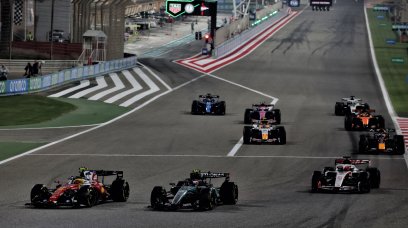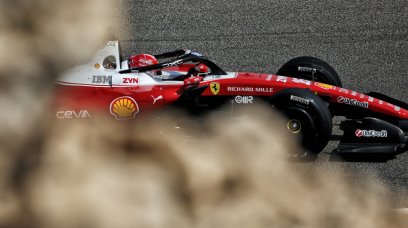F1 between 2014 and 2020 can be summed up as the Mercedes era. After the introduction of new engine regulations in 2014, where turbo-hybrid V6s came into the sport, the Silver Arrows left the competition in the dark. For three years, other teams were well adrift and only from 2017 could rivals deliver any challenge for race victories. After several attempts by Ferrari to clinch a title away from the German marque, Red Bull came to the fore in 2021 after shallow years of its own - Max Verstappen taking the Drivers' title away from Lewis Hamilton. The Milton Keynes-based outfit has since taken the initiative after F1's latest regulation change, with Mercedes struggling to replicate its strong front-running form - only one victory in two years has led to a third and second in the Constructors' standings. Ahead of the new campaign, Mercedes has returned almost to square one when designing its car with a big boost expected in the quest to take the fight to Red Bull, just as the latter did when roles were reversed in 2021. But should Mercedes take inspiration from Red Bull's turnaround?
Continuity
There has been a lot of change at Mercedes in recent years. Yes, Toto Wolff and James Allison are both still [and, in the latter's case, once again] in place but around them, there has been a coming and going of people - important figures in Mike Elliott and James Vowles have both departed. Red Bull, on the other hand, has been fairly static in the key managerial positions. Christian Horner, Jonathan Wheatley, Adrian Newey and Pierre Waché all remain in place and whilst evolution has taken place around them, the critical spine remaining intact is of huge value to the team. Allison stepped back from the Technical Director role to take up a broader Technical Chief role in 2021, yet successor Elliott lasted less than two years in the role before the decision was reversed. That can't help the technical team in the short term.
The engine
Another difference that prevents Mercedes from drawing too much hope from its rivals is how the two teams gained superiority. It is widely recognised that the Brackley-based outfit benefitted from a far superior power unit compared to its rivals during its dominant period, with rumours across that time suggesting it wasn't used to full effect in fear of an FIA intervention - though such theories were never proved. But now, the difference between the Red Bull power unit and Mercedes' is next to nothing and, with engine development frozen anyway, there is not much that can be done in this area anyway. Red Bull suffered with the Renault engine between 2014 and 2019 and had to look towards Honda for assistance, eventually pegging Mercedes back at the end of the regulatory era.
The car vs. the driver
If Mercedes can't look for improvement on the engine front, what about the chassis and aerodynamics? The W13 and W14 were well adrift early in 2022 and 2023 and took plenty of development for Hamilton and George Russell to finish as strongly as they did in both Drivers' and Constructors' standings. Hamilton in particular was outspoken, criticising the cockpit positioning. The failed zeropod concept was also replaced midway through last season so there should be plenty of improvement to be found straight out of the box. But Red Bull's chassis has always been strong - it's Newey's strong point - and the team's resurgence three years ago was more a matter of puzzle pieces falling in the right place. So Mercedes will have to learn from that: everything must work together in harmony, there will not be a silver bullet. That's not to say the team's chassis was poor when it dominated, but rather Red Bull's dominance has not been down to one single factor. Though one can argue there is a single factor dictating success for Red Bull - Verstappen. A look at Sergio Perez rather begs the question to be asked: Is the Red Bull a dominant car? If Verstappen is to blame - we will probably never know for sure - it will be a hard sell for Mercedes. In his dominant years, Hamilton was often able to eke out more than his teammates, but never crushed like the Dutchman has with Perez, Alex Albon and Pierre Gasly before. So even if Mercedes equals Red Bull's machinery, it then comes down to driver versus driver.
Shorter cycle + budget cap
In conclusion, Mercedes is unlucky that the Formula 1 landscape has changed considerably in recent years. Especially in terms of budget and regulations, it becomes more difficult to break dominance. In Mercedes' dominant years, the team threw in hundreds of millions a year, while other teams had less of a budget. Today, the money tap cannot be turned open unlimitedly because of the budget cap. The current ground-effect era ends as early as the end of 2025 ahead of the new regulations - predominantly power unit focused - a much shorter period than what Mercedes experienced. On the one hand, that means there's a big opportunity for Mercedes again in 2026 but on the other hand, Wolff, Hamilton and Russell probably won't be able to manage to lure Red Bull in even within the current regulations. Maybe it would be better for Wolff and co to shift focus firmly to the new era.
Most read
